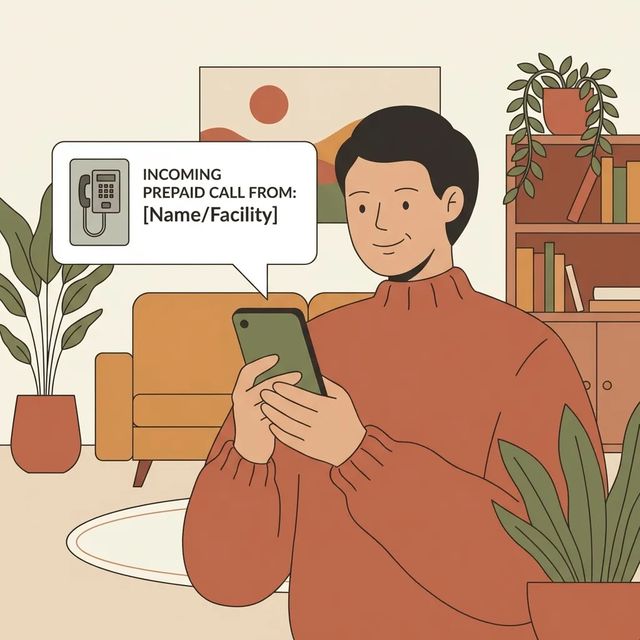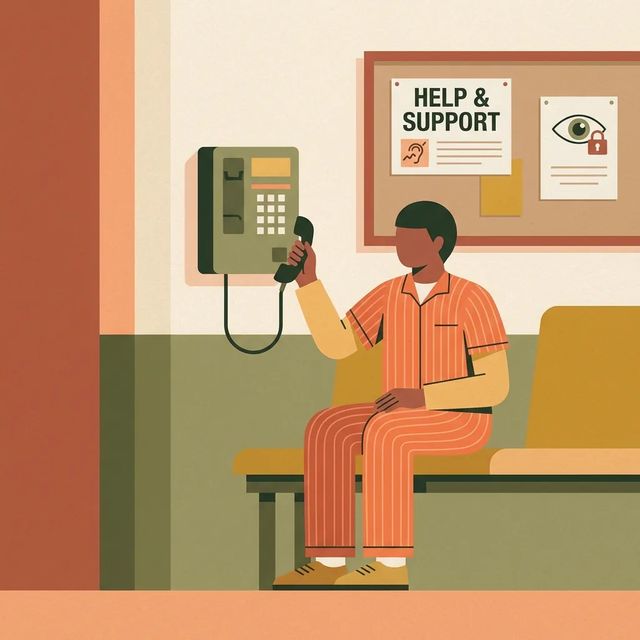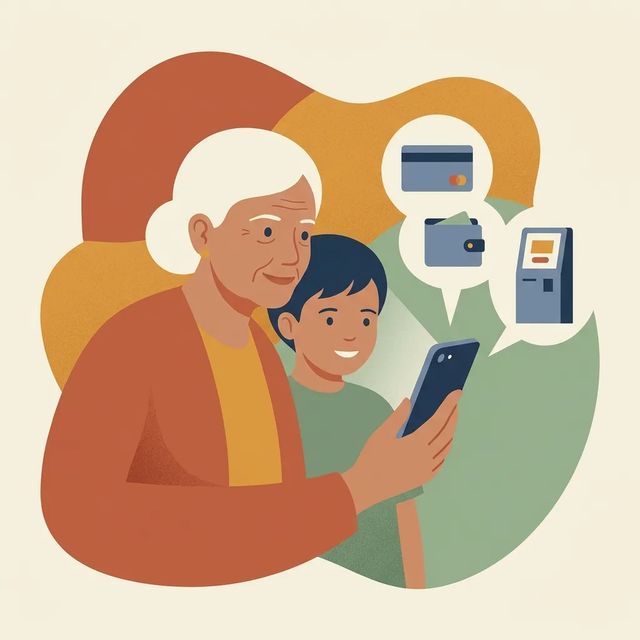Marion Correctional Treatment Center
Explore
Find an Inmate at Marion Correctional Treatment Center
Search for a loved one and send messages and photos in minutes.

Guides for This Facility

How to Get on an Inmate's Approved Call List at Marion Correctional Treatment Center
Getting on an inmate's approved call list at Marion Correctional Treatment Center follows Virginia Department of Corrections (VADOC) telephone rules under Operating Procedure 803.3. Here's what your loved one needs to do to add your number, what you'll hear during the automated consent process, and how numbers stay active or get removed.
Read Guide
When Phone Access Is Limited at Marion CTC: Monthly Caps, Prohibited Actions, and Emergency Calls
If your loved one at Marion Correctional Treatment Center (CTC) isn't calling much, their housing status may be limiting how often they can use the phone. Certain behaviors can also get phone privileges revoked entirely. Here's how monthly caps work, what can trigger a loss of phone access, and what happens in a true emergency.
Read Guide
Three Ways to Pay for Calls from Marion Correctional Treatment Center (Collect, AdvancePay, PIN Debit)
Staying connected through phone calls matters, but figuring out payment options can be tricky. At Marion Correctional Treatment Center (VADOC), you have three choices: collect calls, AdvancePay (pre-paid), and inmate PIN Debit.
Read GuideAt a Glance
Visitation
- You can set up a prepaid phone account for an inmate through ConnectNetwork or by calling 1 (800) 483-8314.
- Deposits to an inmate's PIN Debit Account via ConnectNetwork require the inmate's 7‑digit state ID number.
- Visitors must submit a visitor application and background authorization and be approved before scheduling visits.
Communication
- An inmate's approved call list at Marion CTC may contain up to 15 telephone numbers.
- Inmate telephone PINs are automatically set to the inmate's month and date of birth (MMDD).
- Inmates create and manage their approved call lists using the auto-enrollment system by dialing *44.
Inmate Lookup
- The Virginia DOC inmate locator and local offender lookup are the primary starting points to find people in state custody.
- Search results commonly include housing location, current charges, bail amount, and next court date, but information can be delayed or incomplete.
- You will usually need at least the inmate’s last name and first initial, or the inmate ID number, to run a successful search.
Contact Info
- For crisis assistance VADOC lists 2-1-1 Virginia: call 211 or 1-800-230-6977, or text CONNECT to 247211.
- Who to contact (facility, prosecutor, victim services, local police, or emergency services) depends on the nature of your issue.
- Many local offices provide victim advocates, translation services, and dedicated lines for court scheduling or victim notifications.
Facility Info
- VADOC operating procedure 803.3 applies to units operated by the Virginia Department of Corrections.
- VADOC public phone procedures apply only to VADOC-operated facilities; inmates in local jails follow their jail’s phone rules.
- Community Residential Programs (CRP) are available for eligible inmates, probationers, and parolees; families should speak with the probation officer or counselor about availability.
Based on official sources and community feedback. Learn how we verify
Topic Overviews
Visitation
Visiting Marion Correctional Treatment Center takes some prep, but it's manageable once you know the steps. Phone services run through ConnectNetwork—set up a prepaid account online or call 1 (800) 483-8314. To add money to an inmate's PIN Debit Account, you'll need their 7-digit state ID number. For visitation, submit a visitor application and background authorization, then wait for approval through the Central Visitation Unit. Out-of-state applications may take longer. Video visits typically need to be scheduled at least 24 hours ahead, and in-person options vary by facility. Bring a valid government photo ID that matches your application, make sure any minors are listed, and follow the dress code.
Communication
Phone calls at Marion Correctional Treatment Center run through the VADOC telephone system operated by ConnectNetwork/Global Tel*Link. All calls are recorded and monitored, except properly verified attorney calls. Inmates can place collect, prepaid (AdvancePay), or PIN-debit calls—but only to numbers on their approved call list. That list holds up to 15 phone numbers. Inmates manage it by dialing *44; numbers stay active until removed or the subscriber requests a block. Phone PINs default to the inmate's birth month and day (MMDD). PIN problems? Dial #21 to report issues to the vendor. Lost or replaced PINs get reissued through the GTL Viapath Hotline Response 440_F12. Calls are generally capped at 20 minutes. Restrictive housing statuses have monthly limits: RHU 2, SD‑1 4, SD‑2 6.
Read full guideInmate Lookup
Start with the Virginia DOC inmate locator, or use the county/facility offender lookup for the jurisdiction where the person was arrested—official pages are usually the fastest way to confirm state custody. Results commonly show housing location, current charges, bail amount, and next court date when available. Keep in mind: databases may not reflect very recent transfers, holds, or court updates. You'll typically need at least the last name plus first initial, or the inmate ID number. No match? Try alternate spellings. For amended charges or official case details, check the Virginia courts adult case records or the local court docket. Planning to call or visit after you locate them? Bring the full name and birth date (or arrest date), a valid government ID, and written authorization if you're acting for someone else.
Contact
Need immediate crisis support connected to Marion Correctional Treatment Center? VADOC directs you to 2-1-1 Virginia: dial 211 or 1-800-230-6977, or text CONNECT to 247211. For other situations, figure out what you're trying to solve first—the right contact varies. Sometimes it's the facility; other times it's the prosecutor's office, victim services, local police, or emergency services. Many local offices offer practical help like victim advocates, translation support, and dedicated lines for court scheduling or victim notifications. Worth checking what's available in your jurisdiction. Before you call, look up the correct local office or court page and use the official contact listed there. Have the person's full legal name and date of birth or booking/ID number ready. Bring photo ID for records requests or in-person pickups.
Common Questions
Showing 6 of 15How do I set up a phone account for an inmate at Marion Correctional Treatment Center?
Set up a prepaid phone account through ConnectNetwork, or call ConnectNetwork at 1 (800) 483-8314 to arrange service.
VisitationHow do I add money to an inmate's PIN Debit Account?
Make deposits through ConnectNetwork, and have the inmate’s 7-digit state ID number ready to complete the transaction.
VisitationWhat identification and approvals do visitors need to visit Marion Correctional Treatment Center?
Submit the visitor application and background authorization to the Central Visitation Unit and wait for approval before you schedule a visit. Bring a valid government-issued photo ID that matches your approved application, and ensure minors are listed and accompanied by an approved adult.
VisitationCan an inmate at Marion Correctional Treatment Center call cell phones and landlines?
Yes. Inmates can call landlines and cell phones, as long as the number is on their approved call list. The person receiving the call can refuse collect or debit calls.
CommunicationHow do I report a problem with an inmate's phone PIN at Marion CTC?
Dial #21 to report phone PIN problems to the contract vendor. If a PIN is lost or replaced, the vendor issues a new secured PIN using the GTL Viapath Hotline Response 440_F12.
CommunicationAre phone calls at Marion CTC monitored and can attorney calls be excluded?
Yes—by using their PIN and the DOC phone system, inmates consent to monitoring and recording. Attorney or law firm calls can be requested to be excluded from monitoring if handled through the proper verification procedures.
CommunicationMore Guides
Ready to Connect?
Search for your loved one to start communicating today
Did You Know?
Marion Correctional Treatment Center manages phone privileges for inmates and CCAP probationers/parolees. If you're helping someone set up their approved call list, each list can include up to 15 telephone numbers.
This guide is compiled from official facility documentation and community feedback. Learn how we verify
